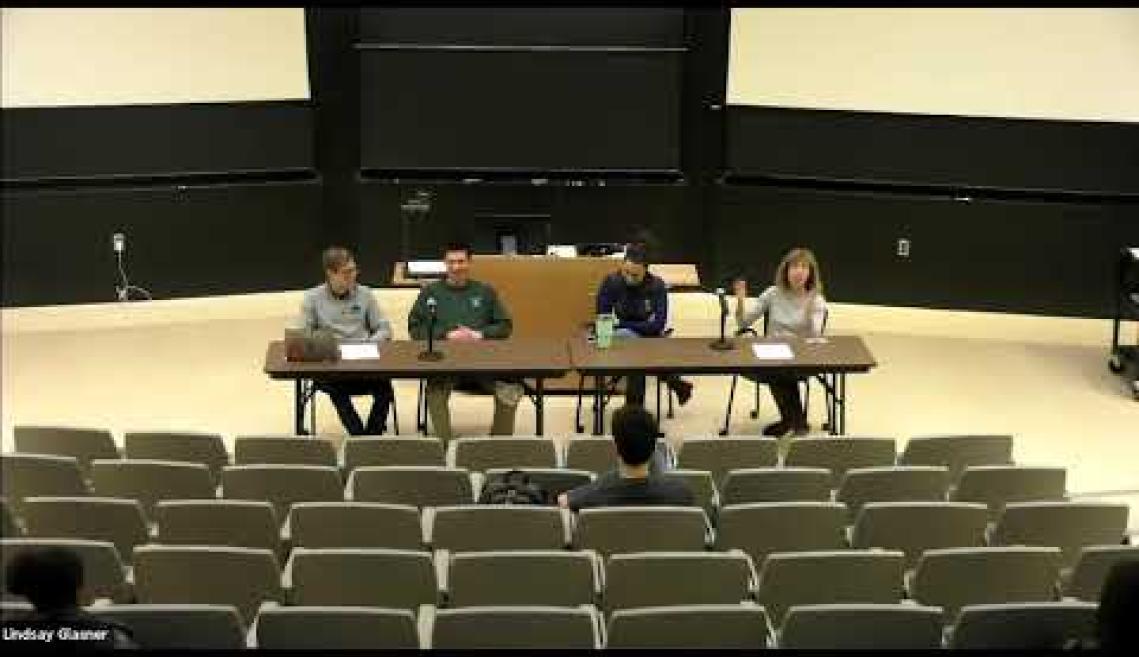Elana Kriegel ’20, president of Mentoring Our Undergraduates, a peer mentoring program in the Department of Animal Science, said that Gavalchin kept her door open for students. “Every time I spoke to her, I felt respected, important and comforted,” she said. “Her honesty made the advice she offered more valuable and her support feel real.”
In late April, when Kriegel told Gavalchin that her grandmother was in the hospital with COVID-19, Gavalchin gave Kriegel her personal number in case she ever needed to reach out. “She was worried about me—how I was doing, focusing and coping. She did her very best to provide all the comfort she could,” Kriegel said.
“We lost a professor, advisor, mentor, and most of all, a friend to many students. Losing someone like that breaks our hearts,” Kriegel added. “She was a role model to all of us because she was an altruistic, kind and brilliant scientist, teacher and woman.”
Gavalchin brought enthusiasm and energy to every aspect of her life. Christel-Remy Kuck ’20, a teaching assistant for Gavalchin in Animal Science 3700, said that Gavalchin would readily join events like the potato sack race during Ag Day, and she spent hours working on lectures to make the learning experience more engaging. Her lectures were peppered with references to famous TV shows, and she hosted review sessions in the style of game shows, complete with prizes and treats.
Kuck was one of many students who benefited from Gavalchin’s support during her application for veterinary school. A former advisee, Hadiyah Edwards ’17, now a veterinary student at Ross University, has been compiling a virtual memorial for Gavalchin and her family, collecting tributes from those who knew her.
Rebecca Harrison ’14, a Ph.D. candidate in Science and Technology Studies, said that Gavalchin was her biggest advocate during her undergraduate years and that support never wavered as she continued her career. “As I’ve grown as an academic,” Harrison said, “she helped me realize the type of advocate I want to be for my own students.”
Tom Overton, professor and chair of the Department of Animal Science, noted that Gavalchin maintained the largest undergraduate advising load in the department, advising on careers in both veterinary medicine and animal health.
Animal Science Lecturer Lindsay Goodale called her “endlessly giving and unfailingly kind,” and Overton agreed, saying that she applied the same energy and enthusiasm to her work with other faculty and staff in the department.
“We could always count on her to jump in and help, whether to offer constructive input or take on a project focused on expanding educational and career opportunities for students,” he said. “She was always there with that can-do attitude.”
In a letter to CALS faculty and staff, Kathryn J. Boor, the Ronald P. Lynch Dean, wrote, “During an already challenging time, this is a tremendous loss to the department, to our students and to the Cornell community as a whole. Jerrie was a longtime colleague, an outstanding teacher and dedicated student advisor. She will be sorely missed.”
Read more about how members of the CALS community remember Gavalchin:
Gavalchin is survived by her husband, Carl Batt, professor in the Department of Food Science, and her daughter, Samantha Batt ’16. Memorial service arrangements will be announced when they are available.
Additional coverage appeared in the Cornell Chronicle.
Support services are available to all members of the Cornell community. Students may consult with counselors from Cornell Health Counseling and Psychological Services (CAPS) by calling (607) 255-5155.
Employees may call the Faculty Staff Assistance Program at (607) 255-2673 or fsap [at] cornell.edu (fsap[at]cornell[dot]edu). The Ithaca-based CrisisLine is available at (607) 272-1616. For additional resources, visit Cornell’s Caring Community website.





